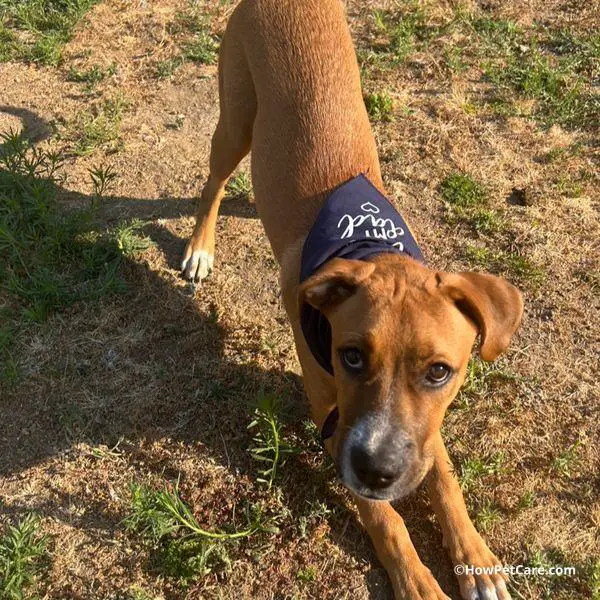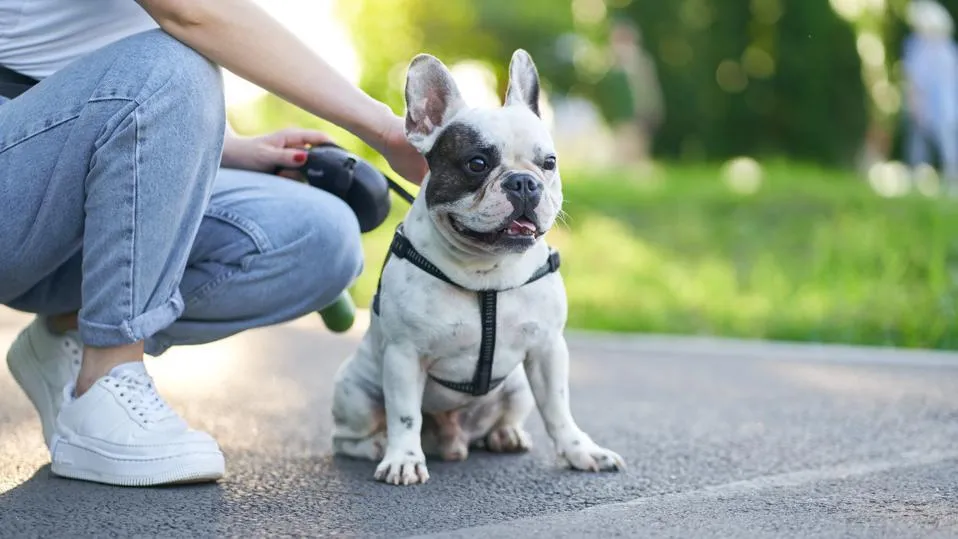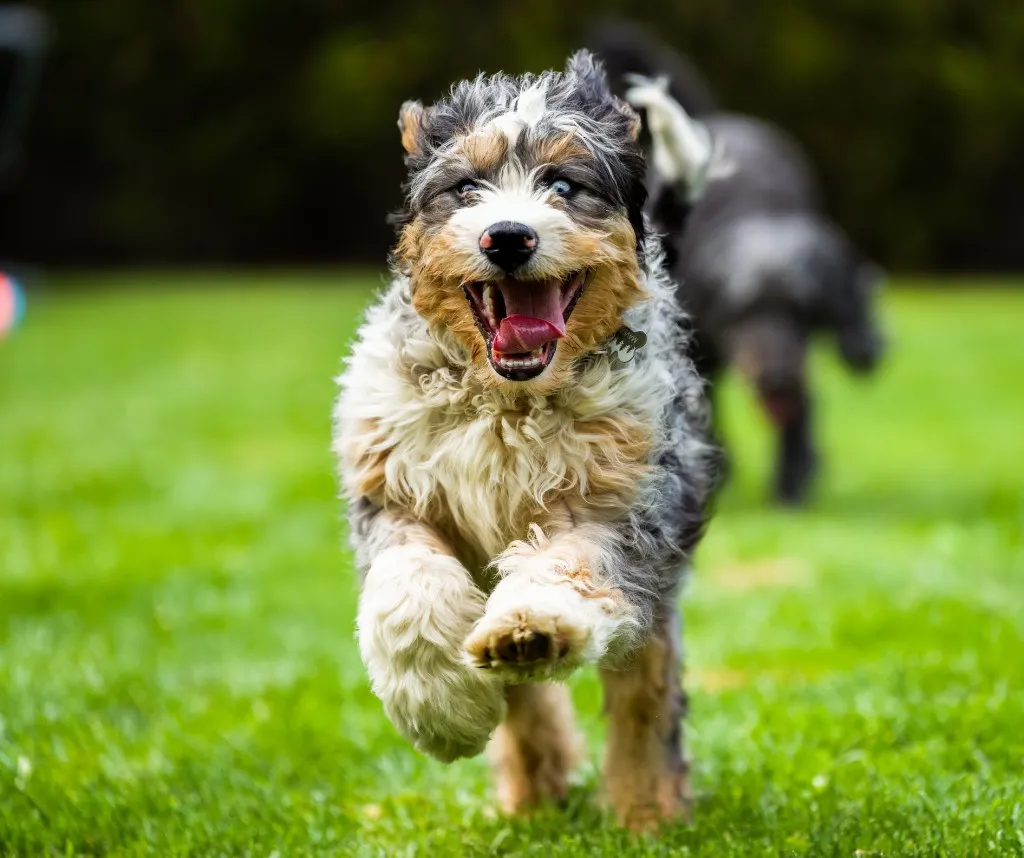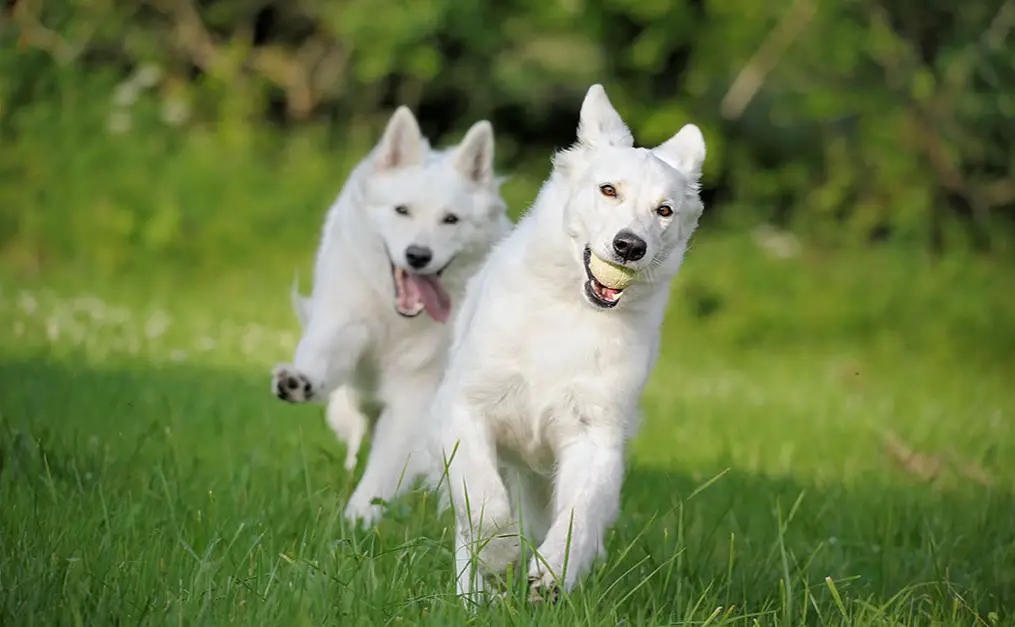Are you looking for a loyal, energetic, and intelligent companion?
Look no further than the Boxador!
This unique hybrid breed combines the best traits of the Boxer and Labrador Retriever, resulting in a dog thats sure to steal your heart.
In this comprehensive guide, we’ll explore everything you need to know about Boxadors, from their appearance and temperament to their care requirements and health concerns.
The Boxador: A Brief Overview
Boxadors are a relatively new designer breed, created by crossing a Boxer with a Labrador Retriever.
These large, muscular dogs inherit the best qualities from both parent breeds, making them excellent family companions and versatile working dogs.
- Height: 23-25 inches
- Weight: 50-110 pounds
- Lifespan: 10-12 years
- Coat: Short, dense, and easy to maintain
- Colors: Black, brown, white, or brindle (sometimes mixed)
A Fascinating History
While the Boxador itself is a recent creation, both parent breeds have rich histories.
The Labrador Retriever originated in Newfoundland, Canada, where it was prized for its swimming abilities and retrieving skills.
Meanwhile, the Boxer descends from ancient Tibetan Mastiffs and was initially bred for hunting and fighting before becoming a beloved companion dog.

Appearance: A Striking Blend
Boxadors are truly a sight to behold, combining the muscular build of the Boxer with the athletic frame of the Labrador. Here’s what you can expect:
- A large, square head with pronounced jowls
- Floppy ears (though some may have semi-erect ears like Boxers)
- A short, dense coat that’s easy to maintain
- Colors ranging from solid black or brown to brindle or white
- A strong, athletic body built for both work and play
One of my clients, Sarah, has a brindle Boxador named Max who turns heads wherever they go.
She often jokes that he’s like a living, breathing work of art!
Temperament: The Perfect Family Dog
If you’re looking for a loyal, loving, and energetic companion, the Boxador might just be your perfect match.
These dogs inherit the best personality traits from both parent breeds:
- Intelligent and eager to please
- Loyal and protective of their family
- Playful and energetic
- Good with children and other pets (when properly socialized)
- Adaptable to various living situations
However, it’s important to note that Boxadors can be prone to separation anxiety.
They form strong bonds with their families and don’t like being left alone for long periods.
If you’re away from home frequently, this might not be the best breed for you.
Exercise Needs: Keep Them Moving!
Boxadors are high-energy dogs that require plenty of exercise to stay happy and healthy.
Plan for at least 60 minutes of physical activity each day, which can include:
- Long walks or jogs (aim for about 9 miles per week)
- Playtime in a securely fenced yard
- Swimming (they often inherit the Labrador’s love of water)
- Interactive games like fetch or frisbee
Remember, a tired Boxador is a well-behaved Boxador.
Without proper exercise, they may become destructive or develop behavioral issues.
Training: Consistency is Key
Thanks to their intelligence and eagerness to please, Boxadors are generally easy to train.
However, they can be stubborn at times, so consistency and positive reinforcement are crucial. Here are some tips:
- Start training early to establish good habits
- Use positive reinforcement techniques like treats and praise
- Keep training sessions short and fun to maintain their interest
- Socialize them early with people and other animals
- Consider enrolling in obedience classes for extra guidance
Grooming: Low-Maintenance Beauty
One of the many perks of owning a Boxador is their relatively low-maintenance grooming needs.
Their short, dense coat is easy to care for with just a few simple steps:
- Brush weekly to remove loose hair and distribute natural oils
- Bathe only when necessary (usually every 2-3 months) to avoid drying out their skin
- Trim nails regularly (every 2-4 weeks)
- Brush teeth 2-3 times per week to prevent dental issues
- Clean ears weekly to prevent infections
During shedding seasons (usually spring and fall), you may need to brush more frequently to keep up with the extra fur.
Health Concerns: What to Watch For
Like all breeds, Boxadors are prone to certain health issues.
Being aware of these potential problems can help you catch and address them early:
- Hip and elbow dysplasia
- Bloat (gastric dilatation-volvulus)
- Eye problems like cataracts and corneal dystrophy
- Heart issues
- Skin allergies
Regular check-ups with your veterinarian, a balanced diet, and proper exercise can help minimize these risks and keep your Boxador healthy.
Nutrition: Fueling Your Active Companion
Boxadors have hearty appetites to match their high energy levels.
On average, they need about 4 cups of high-quality dog food per day, divided into two meals.
This can cost between $2.75 and $3.00 per day, or $39.00 to $90.00 per month.
Choose a food formulated for large, active breeds, and adjust portions based on your dog’s age, weight, and activity level.
Always consult with your vet to determine the best diet for your individual Boxador.
Is a Boxador Right for You?
Boxadors make wonderful companions for active families who can provide plenty of exercise, attention, and training.
They’re great with kids and other pets when properly socialized, and their loyalty knows no bounds.
However, they’re not the best choice for everyone.
If you’re away from home frequently, live in a small apartment, or prefer a low-energy dog, you might want to consider other breeds.
Remember, adopting a dog is a long-term commitment.
Take the time to research and meet Boxadors in person before making your decision.
With the right home, a Boxador can be an incredible addition to your family, bringing joy, laughter, and unconditional love for years to come.
So, are you ready to welcome a Boxador into your life?
Get ready for an adventure filled with wagging tails, slobbery kisses, and endless companionship!
Breed information
| Characteristic | Information |
|---|---|
| Breed Name | Boxador (Boxer + Labrador Retriever mix) |
| Other Names | Laboxer, Boxerlab |
| Origin | United States (crossbreed) |
| Group | Not recognized by AKC (hybrid designer breed) |
| Height | 21-25 inches (53-64 cm) |
| Weight | 55-80 pounds (25-36 kg) |
| Coat | Short, dense coat, typically smooth like a Boxer’s |
| Colors | Black, brown, brindle, fawn, and variations with white markings |
| Lifespan | 10-14 years |
| Temperament | Energetic, loyal, friendly, and protective; loves being with family and is great with children |
| Energy Level | High energy; requires regular exercise and playtime |
| Exercise Needs | High exercise needs; daily walks, play, and activities like running, fetch, and swimming are recommended |
| Trainability | Highly trainable due to their intelligence and eagerness to please; however, consistency is needed as they can be strong-willed |
| Intelligence | Very intelligent, inherits intelligence from both the Boxer and Labrador breeds |
| Good with Children | Excellent with children; gentle and protective, though supervision is recommended due to their size and energy |
| Good with Other Pets | Generally good with other dogs and pets if socialized early, though they may have a high prey drive like their Boxer parent |
| Shedding | Moderate shedding; brushing 1-2 times a week is recommended |
| Grooming Needs | Low grooming needs; regular brushing to control shedding and bathing as needed |
| Barking Level | Moderate; may bark to alert or when excited, but not overly vocal |
| Space Requirements | Best suited for homes with a yard or access to outdoor space; may struggle in small apartments without adequate exercise |
| Socialization | Needs early socialization to prevent potential aggression or over-enthusiasm with strangers and other pets |
| Health Issues | Prone to health issues common to both parent breeds, such as hip dysplasia, elbow dysplasia, heart problems, and allergies |
| Diet | Requires a balanced, high-protein diet; portion control is important to prevent weight gain due to their Labrador side’s tendency to overeat |
| Affection Level | Very affectionate and family-oriented; enjoys spending time with people and thrives on attention |
| History | Developed as a crossbreed in the United States to combine the loyalty of the Boxer with the friendliness of the Labrador |
| AKC Recognition | Not recognized by the American Kennel Club due to being a crossbreed |
| Ideal Living Conditions | Best suited for active families or individuals; needs a home with access to outdoor space for exercise |
| Notable Characteristics | Known for their friendly and playful nature combined with strong protective instincts from the Boxer side |
| Best Activities | Enjoys physical activities like running, hiking, playing fetch, swimming, and participating in canine sports like agility or obedience |
| Suitability for First-Time Owners | Suitable for first-time owners if they are committed to providing exercise, training, and socialization |
| Protective Nature | Protective and watchful, making them good guard dogs without being overly aggressive |
| Playfulness | Highly playful, especially when young; loves interactive games and playtime with family members |
Sources:
- DogTime: Boxador Breed Information
- PetGuide: Boxador Dog Breed Information
- WagWalking: Boxador Breed Overview
















